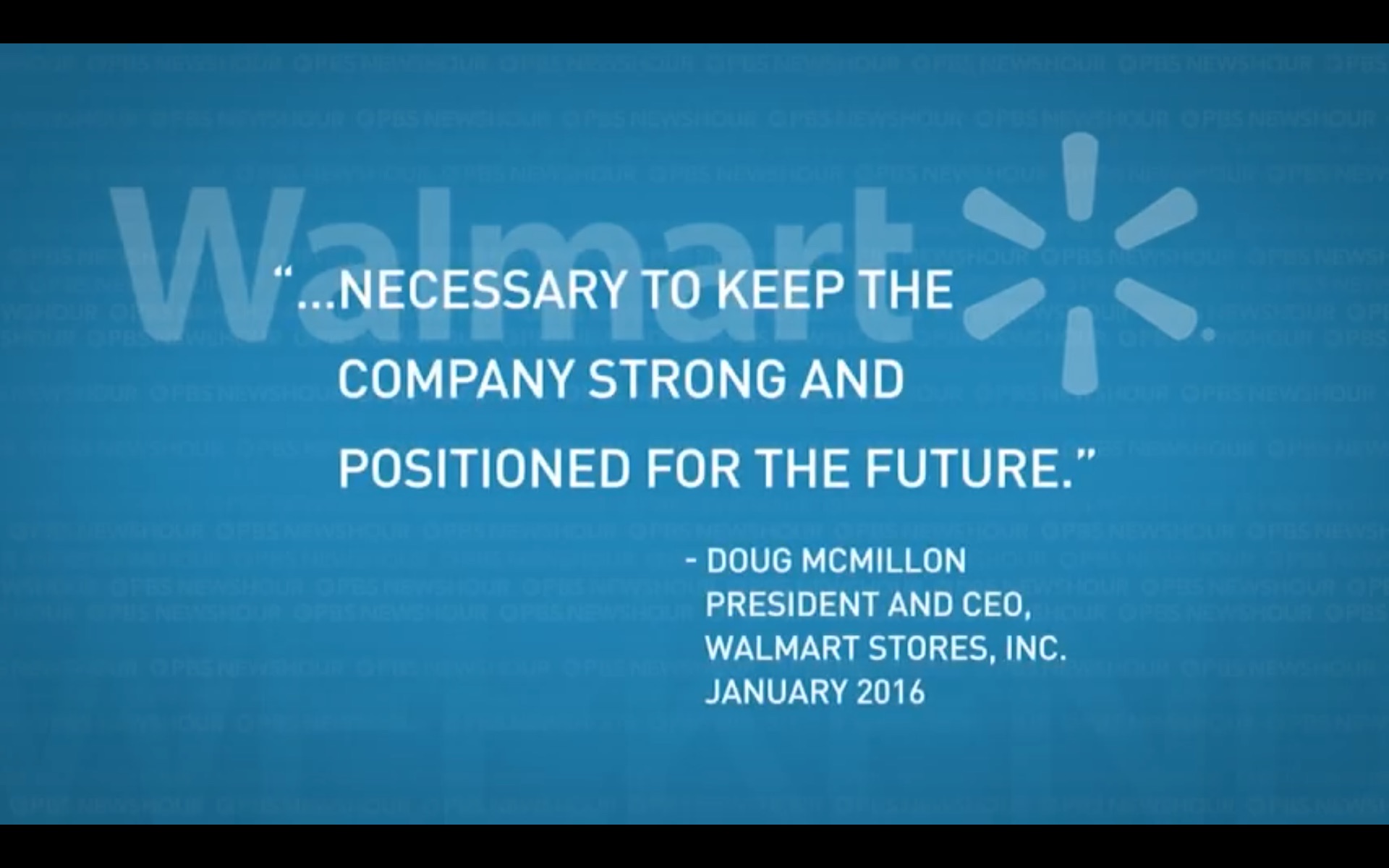When Walmart moves into rural towns, the impact on local small businesses can be devastating and often results in local stores closing down. Even more devastating is the wasteland left behind when a Walmart pulls out of a community after homogenizing the local economy. Educational preparedness and workforce readiness are hindered. In other words, the skills, training, education, and experience needed to stock shelves at a Walmart don’t prepare a workforce for transition to other more complex industries that communities need to survive after a Walmart has left town.
When companies reap profits from natural lands and resources, leaving scorched earth behind, it’s argues that those same companies should restore the natural habitat and ecosystem back to the way it was. A similar argument is made regarding Walmart’s responsibility to pay for education, training, and financing to restore the economic ecosystem required for small businesses to thrive.
The video below from PBS explores this topic in more detail. Walmart leadership explains that restructuring is “… necessary to keep the company strong and positioned for the future.” So, to clarify, businesses like Walmart are not concerned about keeping communities and people “strong and positioned for the future.” They are concerned about self preservation even if it harms others.
